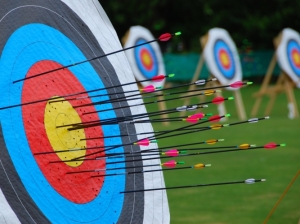An Open Letter to the People in Power
“The way (of blame) is only against those who oppress men and rebel in the earth without justification; for such there will be a painful torment.” [al-Shoora 42:42].
Abu Bakr As-Siddiq (Allah be pleased with him) said: “O you people! You recite this Ayah: Take care of yourselves! If you follow the guidance no harm shall come to you. I indeed heard the Messenger of Allah (s.a.w) saying: ‘When the people see the wrongdoer and they do not take him by the hand, then soon Allah shall envelop you in punishment from him.'” (Jami`at-Tirmidhi, Book 33, Hadith 11)
This is a disclaimer before the letter starts, this letter is being written after having worked with Muslims, for Muslims, helping Muslims and working within the Muslim community, realising all is not what it seems and all that glitters is not gold. Many people who seem to be religious and practising are not as holy and angelic and sanctimonious on the inside as they may seem on the outside. A lot of people in power don’t seem to use their power justly and productively, rather they abuse their power unlawfully, unfairly and unethically. After working for Muslims, I started to look at everything from a leadership lens. The good and bad of every school, masjid, organisation, family and even country were directly related to the quality of their leaders. The aim and purpose of this letter is to remind those in leadership and in power of their duty and the fact that they are answerable to Allah. You have been put in a position to lead by the book of Allah SWT and deal with people fairly and justly as Allah states in the Qur’an:
He be exalted, says (interpretation of the meaning): “Verily, Allah enjoins Al-Adl (i.e. justice and worshipping none but Allah Alone – Islamic Monotheism) and Al-Ihsan (i.e. to be patient in performing your duties to Allah, totally for Allahs sake and in accordance with the Sunnah (legal ways) of the Prophet SAW in a perfect manner), and giving (help) to kith and kin (i.e. all that Allah has ordered you to give them e.g., wealth, visiting, looking after them, or any other kind of help, etc.): and forbids Al-Fahsha (i.e all evil deeds, e.g. illegal sexual acts, disobedience of parents, polytheism, to tell lies, to give false witness, to kill a life without right, etc.), and Al-Munkar (i.e all that is prohibited by Islamic law: polytheism of every kind, disbelief and every kind of evil deeds, etc.), and Al-Baghy (i.e. all kinds of oppression), He admonishes you, that you may take heed” [an-Nahl 16:90].
When leadership is great, success inevitably follows. Likewise, when leadership is poor, failure inevitably follows. Think about it: give me some examples of successful countries, businesses and masjids and I will point you in the direction of the strong leader that orchestrated their success. This letter can be forwarded to Ulama, Imams, Chaplains, Principals of Madrasahs/Darul Ulooms, Headteachers of Boys/Girls Schools, as well as Muslim MPS and Councillors, it can be even sent to Non-Muslims in the above positions.
Abdullah bin Umar (Allah be pleased with him) reported: The Messenger of Allah ﷺ, peace and blessings be upon him, said, “All of you are shepherds and each of you is responsible for his flock. An Imam is a shepherd and he is responsible for those in his care. A man is a shepherd in respect of his family and is responsible for those in his care. The woman is a shepherd in respect of her husband’s house and is responsible for what is in her care. The servant is a shepherd in respect of his master’s property and is responsible for what is in his care. All of you are shepherds and each of you is responsible for his flock.”
What is the modern-day equivalent to the word shepherd in this hadith? IT IS A LEADER! So re-read the hadith above, but this time, replace the word shepherd with the word leader.
I believe that it is our responsibility to become leaders, because that’s what our beloved Prophet ﷺ taught us to be, and that is what he was. He exemplified leadership in all areas of his life, and, if we are truly followers of his example, then we will seek to do the same. Also, by looking at the life of the Prophet Muhammad ﷺ through this lens of leadership, my hope is that we will gain an even greater appreciation of how incredible he was, and our love for him will increase. We will gently remind those in power of their duties and qualities which naturally over time wear off, but need to be revivified.
To Begin…
- Ikhlaas – Sincerity is very important before taking up any position. You must be doing it for the sake of Allah SWT and to seek his pleasure. Narrated ‘Umar bin Al-Khattab: I heard Allah’s Messenger (ﷺ) saying, “The reward of deeds depends upon the intentions and every person will get the reward according to what he has intended. So whoever emigrated for worldly benefits or for a woman to marry, his emigration was for what he emigrated for.” (Bukhari) Some intentions to make and questions to ask yourself:
How are we influencing or making a positive impact in the world?
How are we influencing our families, communities, co-workers, children, cities and countries?
If the Prophet’s mission was about changing the world, shouldn’t ours be too? Should we not also be people of influence?
We are only doing this role to please Allah, not for worldly gain.
2. Fear of Allah – Narrated Ma’qil (Allah be pleased with him): I heard the Prophet (peace be upon him) saying, “Any man whom Allah has given the authority of ruling some people and he does not look after them in an honest manner, will never feel even the smell of Paradise.” (Bukhari, Vol. 9, Book 89, Hadith 264)
Before making any decision, before advising anyone, before deploying someone, you must think of Allah SWT and remember that you will need to answer to Him one day.
Nepotism is growing uncontrollably, people
The advisors of the Messenger included Muslim men of all tribes, races and colours. Their hearts were filled with Tawheed and they were brought together by their faith and piety – such as Abu Bakr (Allah be pleased with him) from Quraysh, ‘Ali ibn Abi Talib (Allah be pleased with him) from Bani Hashim, Bilal the Ethiopian (Allah be pleased with him), Suhayb the Roman (Allah be pleased with him), Salman the Persian (Allah be pleased with him), rich men like ‘Uthman (Allah be pleased with him) and poor men like ‘Ammaar (Allah be pleased with him), people of means and poor people like Ahl al-Suffah, and others (Allah be pleased with them all).
Abdullah narrated that the Prophet ﷺ said: “Indeed, after me you will see preferential treatment, and matters that you dislike.” They said: “Then what do you command us [O Messenger of Allah!]” He said: “Give them their rights, and ask Allah for yours.” Jami` at-Tirmidhi 2190
حَدَّثَنَا عَنْ عَبْدِ اللَّهِ، عَنِ النَّبِيِّ صلى الله عليه وسلم قَالَ ” إِنَّكُمْ سَتَرَوْنَ بَعْدِي أَثَرَةً وَأُمُورًا تُنْكِرُونَهَا ” . قَالُوا فَمَا تَأْمُرُنَا يَا رَسُولَ اللَّهِ قَالَ ” أَدُّوا إِلَيْهِمْ حَقَّهُمْ وَسَلُوا اللَّهَ الَّذِي لَكُمْ ”
It was narrated from Umm Salamah (Allah be pleased with her) that the Messenger of Allah ﷺ said: “You refer your disputes to me and I am only human. Perhaps some of you may be more eloquent in presenting your case than others, so I rule in your favour because of what I hear from you. If I pass a judgement in favour of one of you that detracts from his brother’s rights, then he should not take it, because it is a piece of fire that is given to him which he will bring forth on the Day Resurrection.” (Sunan Ibn Majah, Vol. 3, Book 13, Hadith 10)
3. Seeking name and fame is blameworthy in all circumstances. The believer should be modest and humble, and he should not like to be chosen. One of the main factors that corrupt a person’s efforts to reach his Lord is his love of fame and prominence among people, and the love of leadership over them.
At-Tirmidhi (2376) narrated – and classed it as saheeh – that Ka‘b ibn Malik (Allah be pleased with him) said: The Messenger of Allah ﷺ said: “Two hungry wolves sent against a flock of sheep cannot cause more damage to them than a man’s eagerness for wealth and prominence causes to his religious commitment.”
One of the worst outcomes of the love of fame and prominence, and striving for it, is for a person to seek the praise of people, whether it is deserved or not.
Ahmad (16460) narrated that Mu‘awiyah (may Allah be pleased with him) said: I heard the Messenger of Allah ﷺ say: “Beware of praising one another, for it is like slaughter (i.e., fatal).”
Al-Mannawi (may Allah have mercy on him) said: Praise leads to self-admiration and arrogance, and it is fatal like slaughter, hence it is likened to it. Imam Ghazali (Allah have mercy on him) said: If someone does you a favour, if he is one of those who like to be thanked and praised, then do not praise him, because part of fulfilling his rights is that you should not approve of his wrongdoing, and his seeking thanks is wrongdoing. Otherwise, you may show him gratitude so that he will continue doing good.
Ibraheem an-Nakha‘i (Allah have mercy on him) and al-Hasan al-Basri (Allah have mercy on him) said: It is sufficient trial for a man to be pointed out with regard to religious or worldly matters, except the one whom Allah protects.
End quote from az-Zuhd by Ibn as-Sirri (2/442).
Once we understand this, there can be no doubt that it is safer for a man to prefer anonymity and be humble towards his Lord, and to refrain from seeking fame and prominence, even with regard to permissible worldly matters.
4. Shukr – Be grateful to Allah for the position you have been given. You should pray 2
5.Humility – A quality which is found in very few leaders and people in power. The saying is famous, “Money and Power changes everyone.” People forget who they were and where they were. Money makes people delusional and power leads people to think they are above the law of the land and the law of Allah. Some men have no fear of god, whilst others think they are actually almighty god. The Prophet ﷺ once said ‘the leader of a people is their servant’. He demonstrated this throughout his life from personally building his mosque to partaking in digging during the battle of the Trench. He was not a self-serving in of a higher cause. This was accompanied by humility and living a simple life. He didn’t have a throne and sat among his people as one of them, such that when foreign visitors came, they could not immediately tell from a gathering who the Prophet ﷺ was.
6. Patience and Wisdom – The Prophetﷺ was wise but practical at the same time. Once a Bedouin came to the mosque of the Prophet ﷺ and when the call of nature
This was not only very considerate of him but most wise. He ﷺ recognised that this was not an act of aggression but rather the simple Bedouin did not know about the etiquettes of the mosque and needed to be taught. This was the wisdom of the great teacher—the Prophet ﷺ, who proceeded to counsel the foolhardy Bedouin.
One of the most apparent qualities of the Prophet was his incredible patience. For 13 years he endured abuse and persecution at the hands of his fellow Makkans, including times when his companions were beaten, tortured and in some cases killed. Even the Prophet ﷺ wasn’t spared having animal entrails thrown at him as he prayed. One of his most perilous moments was in Ta’if when the people and their children stoned the beloved Prophet ﷺ until he was bleeding extensively.
Yet he had to remain patient and resilient through the suffering while painfully seeing his beloved followers grossly mistreated. His internal strength and patience, gave his followers strength and patience until God gave them some ease.
7. Courage, Compassion and Competence was in abundance in the Prophet ﷺ who sought to reflect the compassion of the Divine. Once, an elderly who would regularly throw rubbish in the pathway of the Prophet ﷺ fell ill. In seeing this, the Prophet ﷺ did not celebrate this situation rather showed care and compassion by going to visit the old woman, and preparing food for her. His courage was apparent during every battle and every challenging period faced by his people. Once at night during the Madinan period, the companions were awoken by a frightening loud noise. As they cautiously stepped out of their homes to see what was going on, they saw it was an out of control horse, but luckily someone brave had swiftly come out and brought the horse under control. It was none other than the courageous Prophet ﷺ.
He embodied the Quranic framework of Al-Qawi Wal Amin. Hence strong, competence and able, while being trustworthy. Today we find that sometimes good people aren’t the most competent, while the most competent aren’t always being good. The Prophet ﷺ role modelled the need to be both. He was known to be an able communicator who had the gift of ‘jawam’ul kalim’—a poetic way with words enabling him to say much with only a few words. He was an expert swordsman, with excellent equestrian skills but also had day to day practical skills from construction to sewing.
With regard to the imam’s role in society, there is no doubt that it is an important role. How can it be otherwise when he is leading the prayers which are the most important pillar of Islam after the Shahaadatayn (twin testimony of faith)? The Imam is the leader and the worshippers behind him are his followers. The imam guides and leads his jama’ah (group) by giving lessons and talks. The Messenger of Allah (peace and blessings of Allah be upon him) and the Rightly-Guided khaleefahs used to hold gatherings in the mosques where the Muslims would gather so that they might consult with one another concerning religious and worldly matters and so that they might teach the people about Tawheed, fiqh, good manners, and also enjoin what is good and forbid what is evil.”
See Ahkam al-Imamah wa’l-I’timam fi’l-Salah by al-Muneef, p. 64
The imam should check up on those who are absent (from the prayers), and visit the sick, He should strive to meet the needs of the Muslims who pray with him, teaching the ignorant, admonishing the negligent, advising the erring, reconciling those among whom there are differences, bringing them closer to one another and striving to foster friendship and love between them. He should strive to solve social problems that arise among them such as family quarrels, disputes between neighbours and the like. To sum up, the role of the imam is very important and should be appreciated as such. The group should help him to achieve the aims of sharee’ah and ward off anything that is bad or harmful. And Allah is the Source of strength.
The Prophet (peace and blessings of Allah be upon him) said: The whole Muslim is sacred to another Muslim: his blood, his property and his honour
Ismail Ibn Nazir Satia (one who is in dire need of Allah’s forgiveness, mercy and pleasure)



 Happiness or Money?
Happiness or Money?



 1 From the collection of Sahih Muslim
1 From the collection of Sahih Muslim

 Q: What do snowmen take when the sun gets too hot?
Q: What do snowmen take when the sun gets too hot?




 Did the Prophet (Peace and blessings be upon him) say anything about saving our planet? Did he promote any ideas or practices relevant to the world’s growing concern about the future of the earth and its resources?
Did the Prophet (Peace and blessings be upon him) say anything about saving our planet? Did he promote any ideas or practices relevant to the world’s growing concern about the future of the earth and its resources?